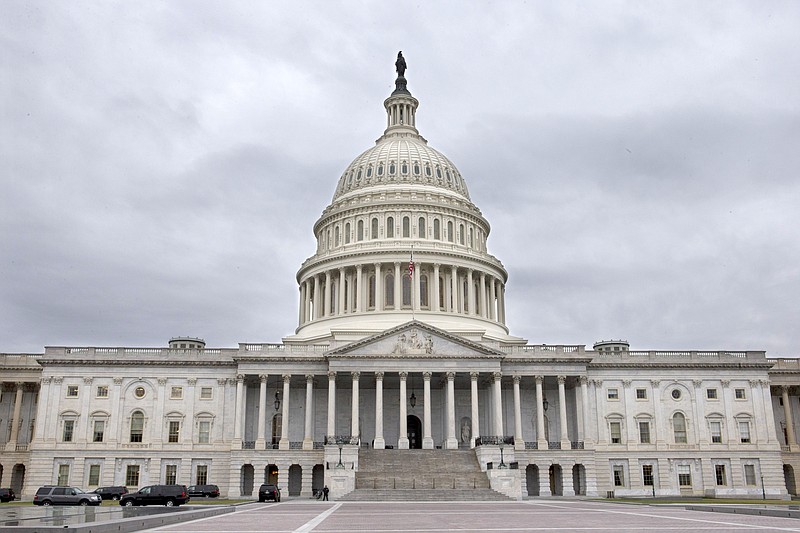For school districts still getting their financial footing after the Great Recession, the Medicaid changes being advanced as part of the health care overhaul are sounding familiar alarms.
School leaders across the country worry their districts could lose state and federal dollars if Congress follows through with plans to change the way Medicaid is distributed, according to The Associated Press. They say any reduction in the estimated $4 billion schools receive in annual Medicaid reimbursements would be hard to absorb after years of reduced state funding and a weakened tax base.
The Hamilton County Schools district could lose more than $4 million in reimbursements if the legislation is approved, officials here said.
Margaret Abernathy, exceptional education director for Hamilton County Schools, said the district has received Medicaid reimbursements for specific services since 2010.
"So, if Medicaid funding is cut, Hamilton County Schools will definitely be impacted in a very negative way," she said. "The over $4 million received by HCDE will have to be replaced by state and local funding."
Across the Tennessee Valley region, school leaders said the proposed changes to Medicaid could slash the reimbursements the districts have come to rely on to help cover the cost of services schools are mandated to provide to students with disabilities.
Sarah Hoskins, director of exceptional student services for Whitfield County Schools in Georgia, said the district files Medicaid claims for reimbursement for the speech therapy, occupational therapy and physical therapy services it offers to eligible students.
"Last year, the district received almost $169,000 to partially fund those therapy services," Hoskins said. "Federal law requires school districts to provide the services, so if Congress cuts Medicaid reimbursements, districts will depend on revenue from local taxpayers to offset the loss in federal funds."
Mark Griffith, superintendent of Marion County Schools, said that district also takes advantage of Medicaid reimbursements and receives about $100,000 annually. If this funding is cut, he said, the district would have to absorb these costs out of the general purpose budget.
"We obviously would have to pull money from somewhere," he said.
Many Tennessee school districts do not receive Medicaid reimbursements, Abernathy said, as the process historically has been cumbersome to navigate, unlike in a majority of states. But Hamilton County Schools has worked with Stellar Therapy Services to pioneer the state's first successful school Medicaid reimbursement program, she added.
The Tennessee Department of Education and TennCare recently launched a task force to help more districts leverage Medicaid reimbursements, if those funds remain available.
The Senate is up next in efforts to do away with President Barack Obama's health law, and school leaders are watching to see whether the changes advanced by the House survive. The House bill would transform the open-ended federal entitlement, which reimburses schools a percentage of the cost of the eligible services they provide to poor and disabled students, using a system in which reimbursements will come in a fixed, per-person amount.
But school leaders argue that providing services to individual students comes with highly varied costs, especially for students with disabilities.
In March, a Congressional Budget Office estimate for an earlier version of the House bill found that federal Medicaid subsidies to states would be $880 billion less over 10 years.
President Donald Trump's administration argues that states will get more freedom to experiment with the program and make sure that people who rely on Medicaid get the care and coverage they need.
Medicaid spending is "not getting out of control because of schools, because schools are getting less than 1 percent of the dollars," Sasha Pudelski, assistant director of policy and advocacy at The School Superintendents Association, told The Associated Press. "It's not kids who are breaking the bank."
An association survey polling 1,000 school leaders reported that schools spent two-thirds of the reimbursement money to support specialists, from school nurses and social workers to speech pathologists.
The association, part of a coalition of more than 50 school and child health advocates, warned congressional leaders in a recent letter against shifting more costs to states and, in turn, local communities. They said that would lead to cuts in services and benefits to children, especially in districts with high poverty rates.
Opponents of the changes say these are potential impacts:
SCHOOL NURSES
Students needing to check their temperatures or searching for tampons may not be able to walk down the hall to see a school nurse. Health professionals such as nurses, physical therapists, speech pathologists, social workers and psychologists may be forced to rove among schools, have their jobs outsourced or have some of their duties taken on by administrative staff if Medicaid reimbursements are cut.
MENTAL HEALTH
Behavioral issues in classrooms are often addressed with counseling through social workers and psychologists that are reimbursed through Medicaid in many states.
HEALTH SCREENINGS
When schools host campus-wide preventative screenings, for everything from vision, hearing, asthma and mental health, some costs are recouped based on the number of Medicaid-eligible students who are treated. Advocates say that vulnerable children may not have access to such preventative services outside of school, but the screenings can catch health issues before they become more serious.
COMMUNITY OUTREACH
School districts often direct and assist students' families with resources, such as helping them sign up for Medicaid or referring them to an eye doctor for glasses. Some hours spent on these administrative tasks are reimbursable by Medicaid.
The Associated Press contributed to this story.
Contact staff writer Kendi A. Rainwater at krainwater@timesfreepress.com or 423-757-6592. Follow her on Twitter @kendi_and.
